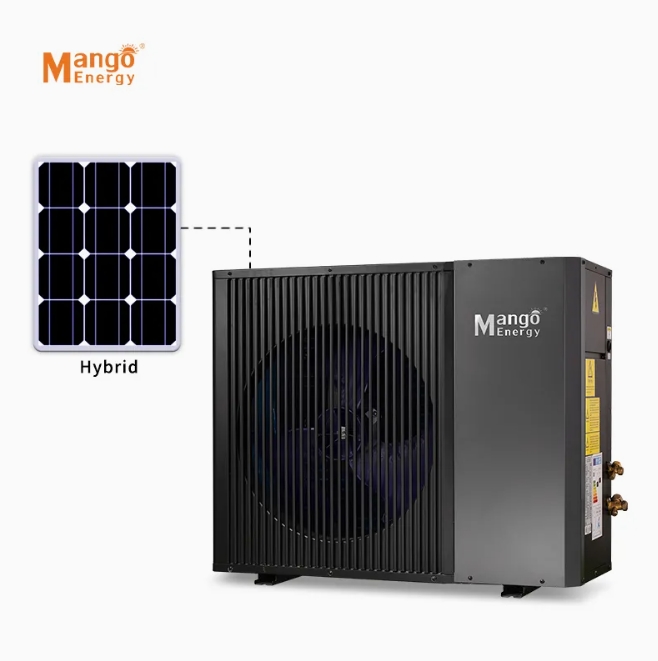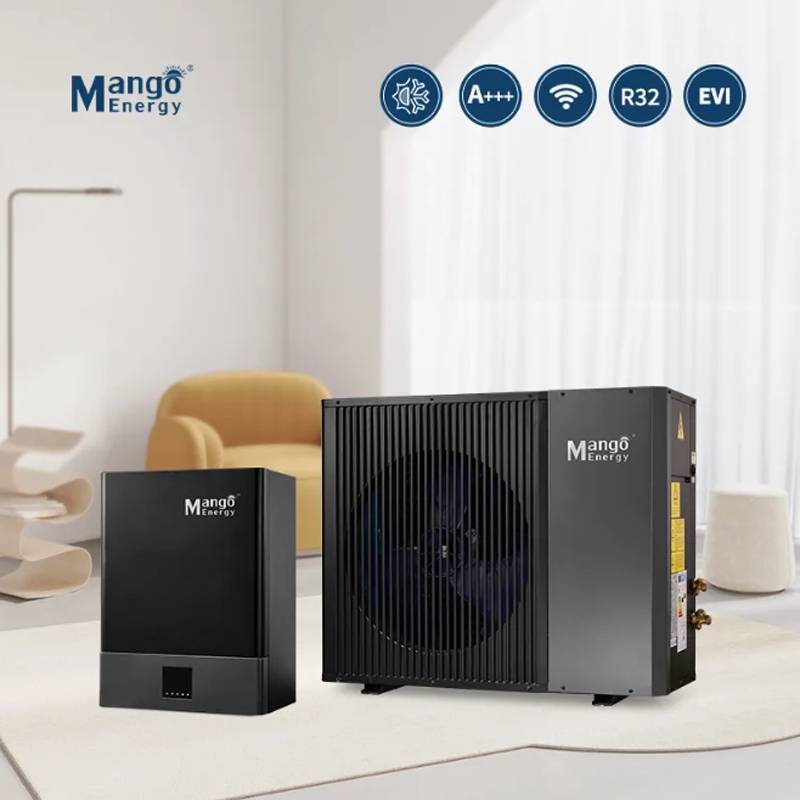
Maintaining fresh, clean air inside homes, offices, and factories has become a growing priority in today’s energy-conscious world. Poor indoor air can affect comfort, productivity, and even health. Thankfully, modern energy saving heat pumps not only reduce energy costs but also help maintain superior air quality all year round.
Whether you’re a homeowner, hotel operator, or industrial engineer, understanding how heat pump technology impacts indoor air quality can guide you toward smarter, cleaner, and more sustainable solutions.
Let’s explore how Mango Energy’s energy saving heat pumps can transform your indoor environment.
The Connection Between Air Quality and Heating Systems
Traditional heating systems, such as gas furnaces or oil boilers, burn fuel directly. This process can introduce combustion by-products like carbon monoxide, nitrogen oxides, and dust particles into indoor air.
In contrast, an energy saving heat pump works differently. It transfers heat rather than generating it through combustion, which means no emissions, no fumes, and cleaner indoor air.
Moreover, advanced filtration and ventilation design in modern heat pumps help regulate humidity and filter out harmful particles — both crucial for healthy indoor environments.
How an Energy Saving Heat Pump Improves Indoor Air Quality
1. No Combustion, No Emissions
Unlike conventional boilers, heat pumps don’t burn fuel. This means no harmful gases or pollutants are released indoors.
As a result, users enjoy cleaner, odor-free air with minimal risk of indoor air contamination.
2. Constant Air Circulation and Filtration
Energy saving heat pumps continuously circulate indoor air through advanced filters.
These filters capture:
Dust and pollen
Pet dander
Mold spores
Fine particulates (PM2.5)
Regular air cycling prevents stagnant air and reduces respiratory discomfort, making spaces safer for both residential and commercial occupants.
3. Humidity Control for Comfort and Health
Proper humidity levels are key to comfort.
Too much humidity encourages mold growth, while dry air irritates skin and throat.
Mango Energy’s heat pumps regulate humidity automatically, keeping indoor moisture between 40%–60%, which is ideal for both health and furniture preservation.
4. Improved Ventilation in Sealed Environments
Modern buildings are designed to be airtight for energy efficiency, but this can trap pollutants inside.
Energy saving heat pumps with fresh air modules introduce filtered outdoor air, maintaining a balanced oxygen level and preventing stuffiness — a major upgrade over traditional HVAC systems.

Why Energy Saving Heat Pumps Are Ideal for Commercial and Industrial Environments
1. Cleaner Air for Hotels and Offices
Hotels and commercial spaces prioritize guest comfort. Heat pumps reduce dust accumulation in ducts and maintain steady air circulation, ensuring fresher indoor conditions with fewer maintenance issues.
2. Better Working Environments in Factories
Industrial facilities often face dust, fumes, and temperature challenges.
Installing energy saving heat pumps in production or office zones helps maintain both air cleanliness and stable thermal comfort, which directly boosts employee performance.
3. Sustainable Solution for Eco-Friendly Projects
For green buildings and ESG-compliant industries, Mango Energy heat pumps contribute to low-carbon air management.
They combine energy efficiency with environmental responsibility, supporting LEED and ISO certifications.
Key Technical Features That Support Air Quality
When choosing an energy saving heat pump, look for these essential features:
HEPA or Activated Carbon Filters – Capture fine dust and eliminate odors.
UV Sterilization or Ionization Modules – Kill bacteria and viruses for healthier air.
Smart Airflow Control – Maintains even temperature distribution throughout rooms.
R290 Refrigerant Technology – Reduces environmental impact with zero ozone depletion potential.
At Mango Energy, every heat pump is designed with both efficiency and air purity in mind, making them a reliable choice for smart, sustainable indoor environments.
The Added Value: Long-Term Health and Energy Savings
Investing in an energy saving heat pump means more than just lowering utility bills.
It’s a long-term investment in comfort, health, and environmental protection.
Lower maintenance costs due to clean operation
Reduced risk of respiratory issues
Stable indoor comfort in all seasons
Smaller carbon footprint for your home or business
In essence, choosing a Mango Energy heat pump means creating a cleaner, healthier, and greener indoor ecosystem.
Why Choose Mango Energy for Your Air Quality Solution
Mango Energy has built a reputation for innovation and reliability in energy saving heat pump technology. Our systems are designed for both residential and commercial applications, combining high efficiency with superior air quality management.
Our advantages include:
Advanced R&D for indoor climate control systems
Custom OEM/ODM support for distributors and B2B clients
Global logistics and after-sales support
Proven compliance with CE, RoHS, and ISO standards
By partnering with Mango Energy, you’re investing in a cleaner future — one that benefits your health, your energy bills, and the planet.

Conclusion
Improving indoor air quality no longer requires separate ventilation systems or high maintenance filters.
With a modern energy saving heat pump, you can achieve efficient heating, cooling, and air purification — all in one system.
Whether for a home, a hotel, or an industrial plant, Mango Energy’s energy saving heat pumps deliver performance you can trust and air you can truly breathe.
FAQs
1. Can energy saving heat pumps replace traditional air purifiers?
Not entirely, but they significantly reduce airborne particles and pollutants, offering a cleaner indoor environment while saving energy.
2. Are Mango Energy heat pumps suitable for high-humidity regions?
Yes. They feature automatic humidity control and corrosion-resistant components for reliable performance in coastal or humid climates.
3. How often should filters be cleaned or replaced?
For optimal air quality, filters should be cleaned every 2–3 months and replaced annually, depending on usage and environment conditions.


